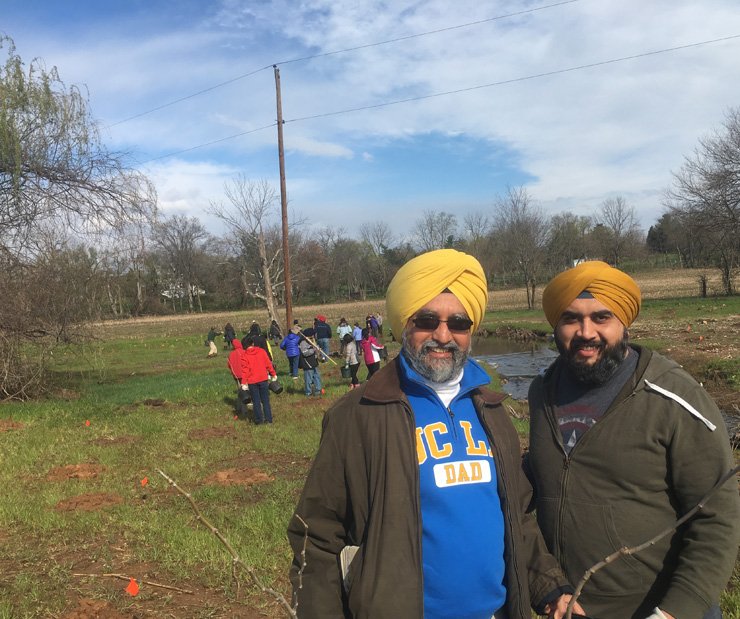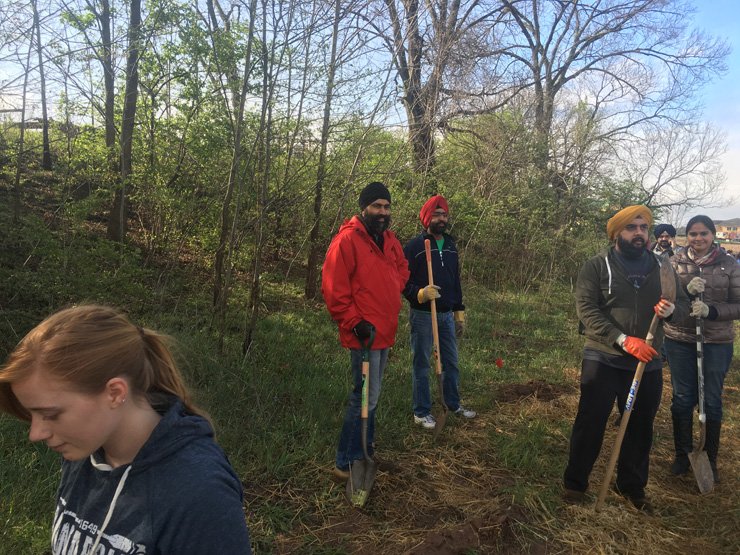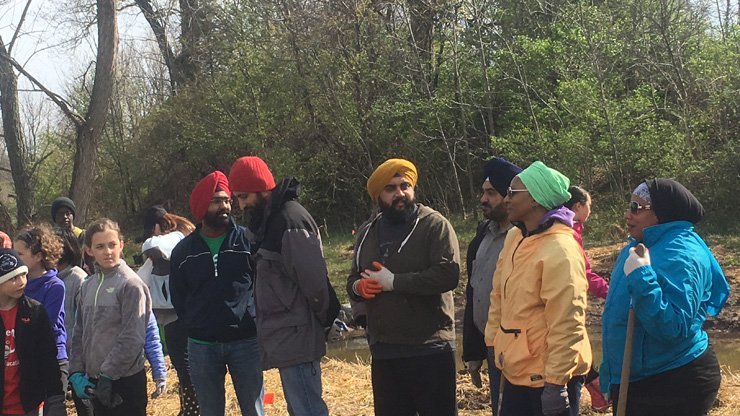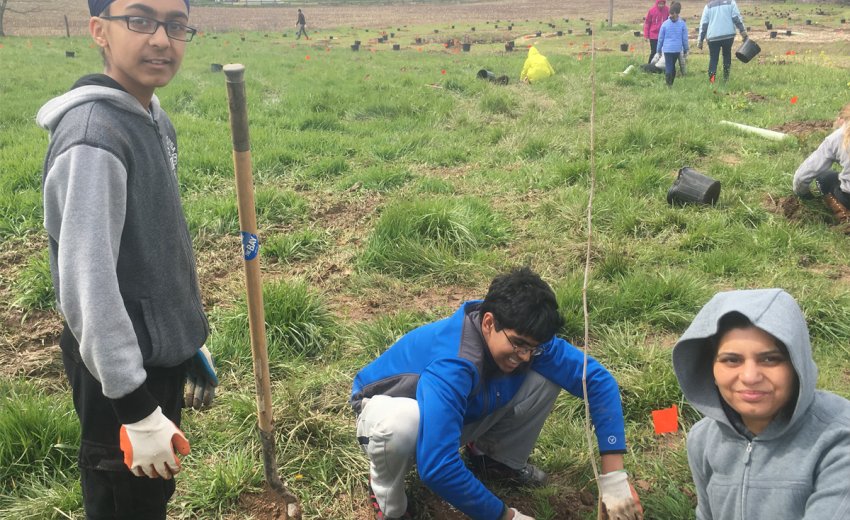
Washington, D.C. April 25, 2015 - 25 EcoSikh volunteers took part in the “Tree plantation Sewa” at Little Tuscarora Creek, in Frederick, Maryland, a suburb of Washington, DC. EcoSikh joined Chesapeake Bay Foundation planting 1,100 trees and shrubs around the Creek to restore the stream system as well as trout fish. Even though, the weather was windy and cloudy with chances of snow, 50 volunteers from various groups across the Washington metro area joined in this effort.
EcoSikh also served “Guru ka Langar - free meal” after the tree plantation event for all the volunteers who had come to be a part of this activity. Other groups included volunteers from Girls Scouts and University of Maryland.
Loveleen Kaur, EcoSikh's Program Manager, said, “EcoSikh, true to its vision, has been working on climate-change issues and has urged Sikhs and Sikh Gurudwaras to take green actions in Punjab and across the world. Planting of trees is the an important step to take a positive step towards climate action”.

Harmeet Singh, President of EcoSikh Washington D.C., said, “This event has been a great initiative towards a greener planet, starting with our own surroundings. We also thank the family of Makhan Singh of Frederick for providing sandwiches for all volunteers. This is a wonderful expression of Sikh spirit of sewa”.
This project consisted of the restoration of approximately 1,500 linear feet of the Little Tuscarora Creek, located in Frederick, Maryland. The U.S. Fish and Wildlife Service, Maryland DNR, and Trout Unlimited also partnered to stabilize stream banks and provide in-stream fisheries habitat for this cold-water stream. The forested streamside buffers (“riparian buffers”) have been installed and proven scientifically to be the most effective and least costly best management practice for preventing pollution of our rivers and streams.

The stream system was impacted by cattle in the stream, adjacent row crop field’s input of sediment and the lack of a riparian buffer. The stream had down cut, no longer having a connection to the floodplain, resulting in substantial stream bank erosion. These impacts have been removed, and stone structures have been installed to reconnect to the floodplain and provide in-stream fisheries habitat. This watershed has been targeted as a high-priority brook trout watershed by Frederick County Public Works and the Eastern Brook Trout Joint Venture and Maryland Brook Trout Alliance.
The farmland around the Creek was previously owned by the first Governor of Maryland, Thomas Johnson until 1790s. Now, it is owned by fifth-generation farmers who have been growing corn and soybean in their land. The father-son duo has been enthusiastic about conserve the Creek and have also studied fisheries' sciences.

EcoSikh ended the plantation drive with a prayer from the Sikh tradition where many volunteers from other faiths joined. Dr. Rajwant Singh recited a hymn from the Sikh scriptures and prayed for all volunteers and for the well being of all life forms around the area.
EcoSikh engages worldwide Sikh community on environmental and climate change issues. It works closely with the White House, the World Bank and the other international environmental bodies and the UN.
